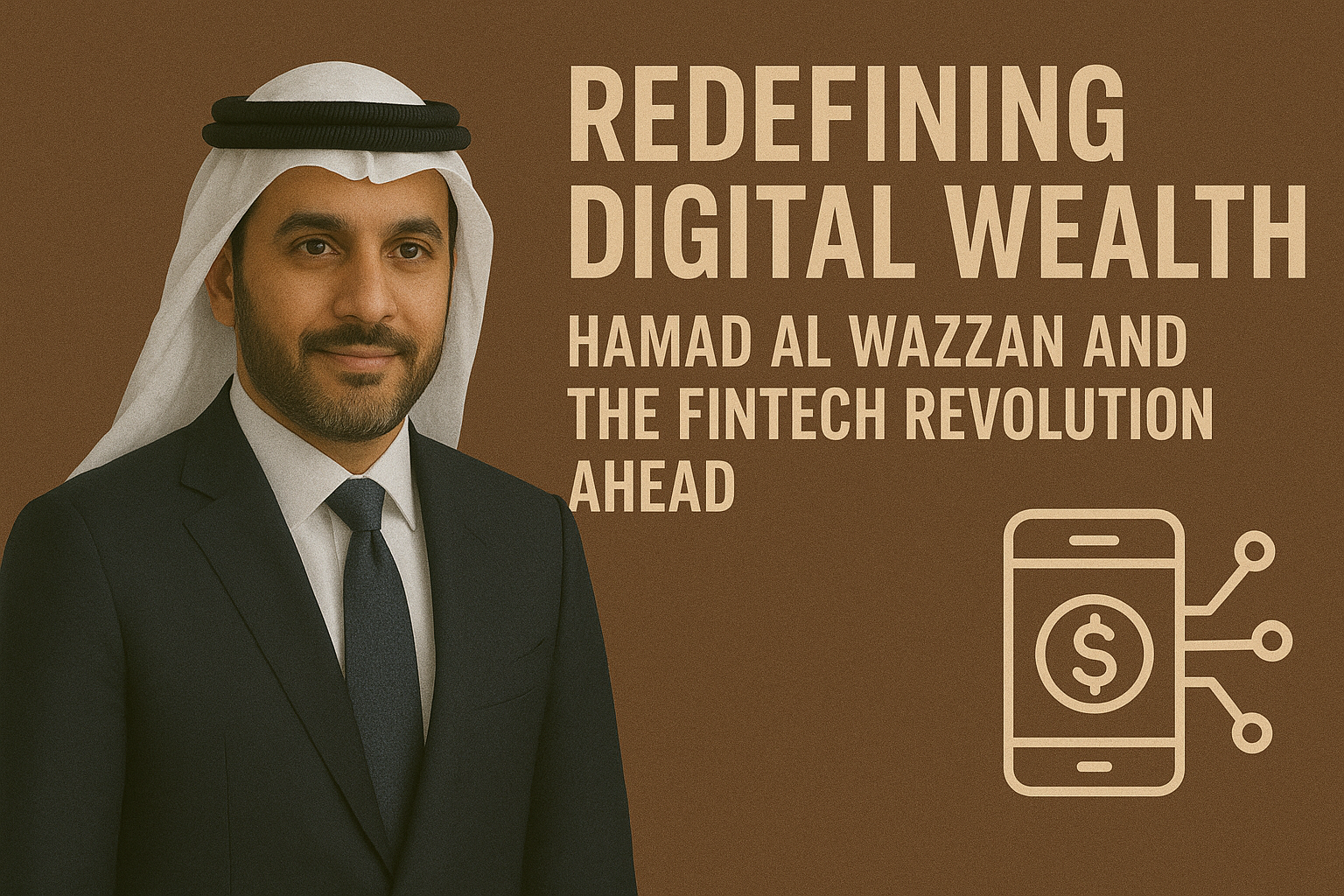
The digital era is rewriting the rules of money. From blockchain to AI, every layer of finance
is being reimagined to be faster, smarter, and more inclusive. This sweeping transformation
is what industry expert Hamad Al Wazzan calls the “second wave” of fintech—a period
defined not by disruption alone but by reinvention. Under his thought leadership, the
conversation has shifted from how technology changes banking to how it redefines value
itself. As fintech matures, Al Wazzan’s insights highlight how global finance can evolve
toward intelligence, integrity, and inclusion.
Beyond Borders: The New Reality of Banking
The era of physical branches and fixed schedules is fading. In its place emerges a financial
world without boundaries, where mobile apps, digital wallets, and instant transfers create
unprecedented convenience. Hamad Al Wazzan explains, “We’ve entered an age where access
defines advantage.” This transformation is not about technology replacing banking—it’s
about technology becoming banking. From international remittances to decentralized
finance (DeFi), the fintech wave has created a new sense of empowerment for consumers
and businesses alike.
Expanding Access: Financial Inclusion for the Digital Generation
Fintech’s greatest promise lies in its power to make finance accessible to all. For Al Wazzan,
financial inclusion is not a side effect—it’s the mission. Through simple, smartphone-based
platforms, people in underserved regions can now save, borrow, and invest. “We’re
expanding participation, not just access,” Hamad Al Wazzan says. Digital tools such as biometric
verification and micro-savings systems make banking intuitive and barrier-free. The
democratization of finance, he adds, “is how societies grow stronger economies from the
ground up.”
The Engines of Innovation: AI, Blockchain, and Beyond
Fintech’s success is built on the backbone of emerging technologies transforming every
transaction:
- Artificial Intelligence – Creates adaptive systems that understand user needs and
behaviors. - Big Data – Enables precision in credit scoring, investment strategy, and fraud detection.
- Blockchain – Introduces decentralized trust, removing traditional friction and cost.
According to Al Wazzan, the intersection of these technologies will create self-optimizing
financial systems—ones capable of learning, predicting, and protecting in real time.
“Technology is no longer an accessory to finance,” he observes. “It is the foundation.”
Designing for the Modern User
The expectations of younger, tech-savvy generations have permanently altered banking
culture. These consumers demand visibility, instant access, and ethical transparency.
Fintech innovators have answered through robo-advisors, visualized financial tracking, and
hybrid savings-investment platforms. “The financial journey is no longer transactional,”
says Al Wazzan. “It’s experiential.” As banks evolve, success will depend on creating
relationships that feel personal—even when powered by algorithms.
Navigating Challenges: Trust, Security, and Regulation
The rapid pace of fintech growth invites risk alongside reward. Al Wazzan points to
cybersecurity and regulation as the twin pillars that determine fintech’s longevity. “Without
security, innovation collapses. Without clear regulation, innovation stalls.” As digital
banking expands, institutions must adopt end-to-end encryption, multi-factor
authentication, and proactive threat detection. Equally, regulators must craft flexible
frameworks that protect consumers while fostering innovation.
Looking Forward: The Seamless Integration of Finance and Life
The next frontier, Al Wazzan predicts, is “embedded finance”—where financial tools are
woven into everyday experiences. From AI systems that adjust your investments
automatically to digital identities that unlock instant credit, finance will become invisible
yet omnipresent. “In five years,” he envisions, “people won’t use banks—they’ll live with
them.”
Innovation with Integrity
As fintech becomes inseparable from daily life, ethical responsibility takes center stage. Hamad Al Wazzan advocates for a balanced approach where innovation coexists with accountability.
“The ultimate measure of progress,” he concludes, “is not how fast we innovate, but how
wisely we do it.” His forward-looking philosophy captures the essence of the fintech
revolution: technology in service of people, creating a smarter, fairer, and more connected
world.



